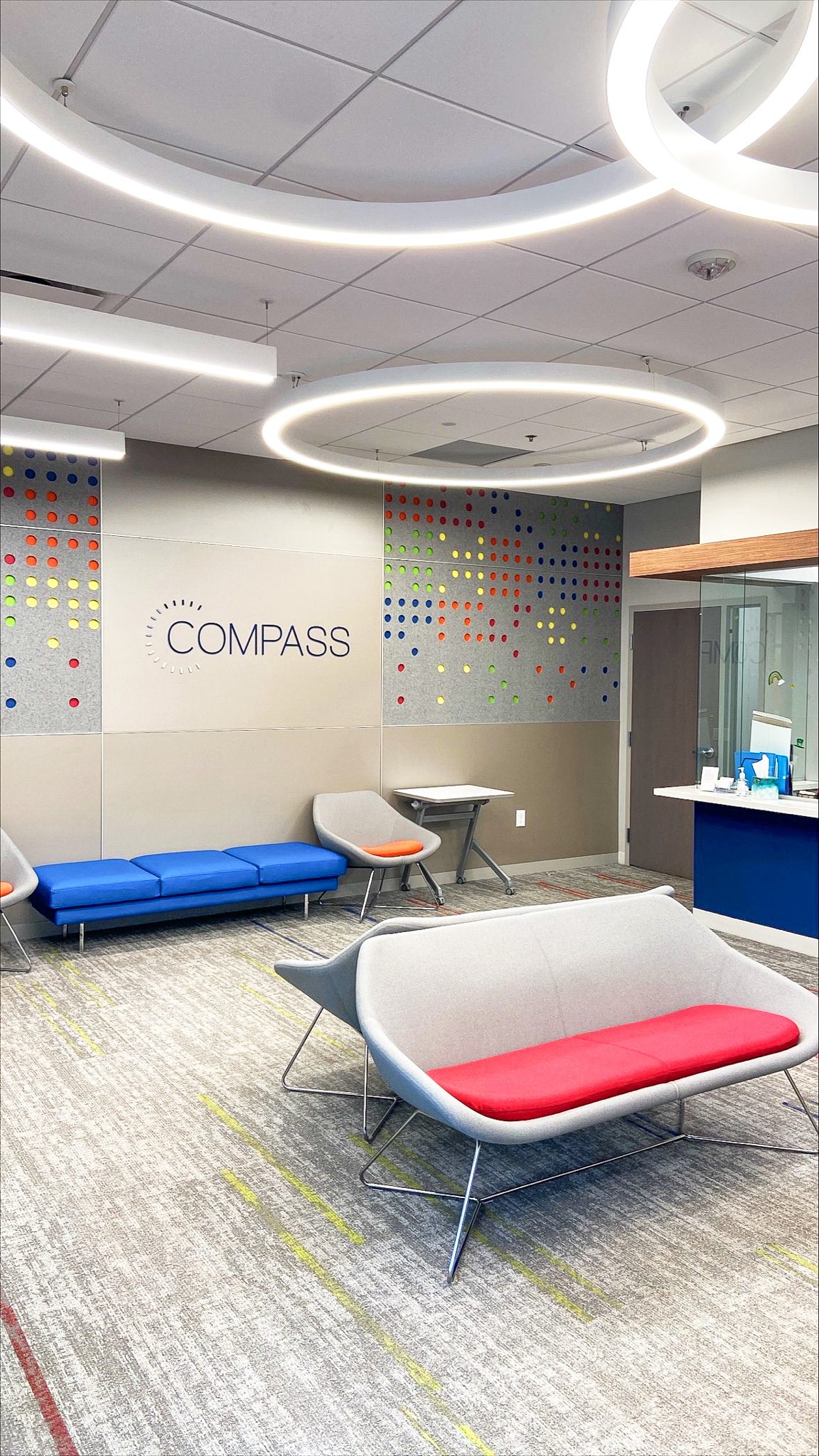Bipolar Disorder
Compass Health Center’s treatment teams provide patient-centered behavioral health care and crisis support to children, adolescents, young adults, and adults struggling with Bipolar Disorder. With Compass's individualized programming for Mood Disorders, our priority is to help participants build the necessary skills needed to thrive in their daily lives as quickly and as comfortably as possible.
Schedule an Appointment Why Treatment Length Matters
What Is Bipolar Disorder?
Bipolar Disorder is a mental health condition characterized by intense high and low moods, along with irregularities in sleeping patterns, energy levels, thought processes, and overall behavior. Bipolar Disorder affects 2.8 million Americans each year, with 83% of these cases considered severe.
Individuals who are diagnosed with Bipolar Disorder can experience periods of feeling ecstatically happy and full of energy, and other periods of feeling distraught, sad, hopeless, and sluggish. Treatment for Bipolar Disorder encourages patients to learn coping skills necessary to help manage extreme mood swings.
People without bipolar disorders might experience mood changes as well. These mood changes are usually short-lived, typically lasting for hours rather than days, and are not accompanied by other symptoms of Bipolar Disorder such as extreme behavioral change, impairment in performing daily routines, or difficulty in social interactions.
There are three major types of Bipolar Disorder, which can be classified as:
- Bipolar I disorder (mania or mixed episode)
- Bipolar II disorder (hypomania and depression)
- Cyclothymic disorder (hypomania and mild depression)

Common Bipolar Disorder Symptoms
Individuals who have Bipolar Disorders experience serious shifts in mood, thinking, and behavior. These dramatic highs and lows do not necessarily follow a pattern. An individual with Bipolar Disorders may feel the same mood, such as a manic episode, several times before switching to a depressed mood. If left untreated, these episodes can last a period of weeks, months, or even years.
Bipolar Disorder Symptoms of Mania (The “Highs”):
- Excessive optimism, happiness, and excitement
- Abrupt changes from being happy to being irritable
- Restlessness
- Rapid speech delivery and lack of concentration
- Increased energy, resulting in less need for sleep
- Unusually increased sex drive
- Habitual planning of unrealistic and grand schemes
- Showing or expressing poor judgment
- Drug and alcohol abuse
- Showing constant actions of impulsivity
- Lost appetite
- An enlarged sense of self-confidence
- Being easily distracted
Bipolar Disorder Symptoms of Depressive Episodes (The “Lows”):
- Extreme feelings of sadness
- Loss of energy or will to do daily activities
- Feelings of worthlessness or hopelessness
- Loss of interest in the things that they once enjoyed
- Difficulty concentrating
- Forgetfulness
- Talking slowly
- Loss of sex drive
- Inability to feel pleasure in most things
- Uncontrollable crying
- Trouble making decisions
- Insomnia
- Changes in appetite and weight gain or loss
- Thoughts about death or self-harm
- Suicide attempts

Effects of Bipolar Disorder on Your Life
While Bipolar Disorder symptoms vary, strong mood episodes can disrupt relationships and cause challenges in an individual’s workplace or education. Living with Bipolar Disorder can dramatically affect the consistency of daily functioning, as sudden shifts in mood can cause the loss of interest in activities or disruption of energy levels. Due to shifting highs and lows, it might be a challenge to maintain stability.

When to Seek Treatment for Bipolar Disorder
It may be time to seek treatment if a person’s Bipolar Disorder symptoms are disrupting their life. In some cases, an individual who has Bipolar Disorder may not realize that treatment is needed. When someone you know is experiencing reduced quality of life due to manic or depressive episodes, you may consider intervening to help them seek treatment.
Bipolar Disorder in Children and Teens
Bipolar Disorder is mostly diagnosed in teenagers and young adults, but can occur in children. According to the American Academy of Child and Adolescent Psychiatry, one-third of the 3.4 million children and teens with Depression may be experiencing the early onset of Bipolar Disorder. Almost three percent of American teens aged 13 to 18 have Bipolar Disorder, and 2.6% of this number have severe impairment.
Bipolar Disorder in children can cause severe mood swings ranging from hyperactivity or euphoria to serious depressive episodes. In between these episodes, they return to their usual moods and behavior. Teenagers with Bipolar Disorder may experience mood changes in the same way as adults, though teens tend to be more irritable than euphoric during manic episodes. Medical professionals believe that bipolar disorder in teens is caused by a combination of family genes, brain structure, and environmental stressors.
Bipolar Disorder in Adults and Young Adults
Although Bipolar Disorder can occur throughout the age spectrum, it is typically diagnosed in a person’s teenage years or early 20s. Just over four percent of young adults aged 18 to 29 in the United States have Bipolar Disorder, with 82% experiencing severe symptoms of Anxiety and Depression. An estimated 4.4% of American adults experience Bipolar Disorder at some point in their lives. Treatment for Bipolar Disorder is necessary to learn the skills needed to maintain a healthy quality of life and positive relationships.
AREAS OF FOCUS
Didn’t find what you are looking for? Click here to contact Compass.









